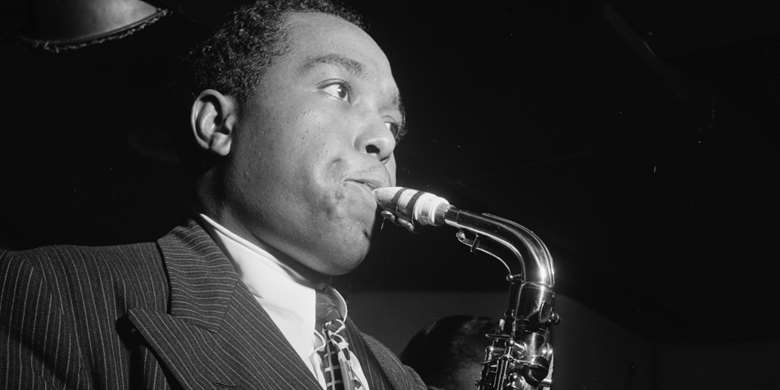Charlie Parker
Charlie Parker's incredible improvising genius changed jazz completely, and his influence can readily be seen in the jazz played today, decades after his death

Charlie Parker – universally known as Bird during his lifetime and after – was a native of Kansas City and an inheritor of the great swing legacies of Lester Young and the KC Blue Devils, but as a teenager he discovered that his revolutionary ideas about jazz would need a wider stage than KC juke joints and bars for him to prosper: one night at a jam, a drummer disgusted by what he heard simply threw his cymbal onto the dancefloor and watched in silence as Bird packed up and left.
Not everyone felt the same way, for Jay McShann hired Parker to play in his touring orchestra, and Bird cut his first solos with that band. By 1944, however, the altoist was in New York as a freelancer and making a huge impact on the young Turks hanging out in Harlem, Dizzy Gillespie and Thelonious Monk in particular.
Diz got him work with Earl Hines and Bill Eckstine, but by 1945 they had their own quintet together and cut some sides in New York which remain some of the greatest improvised jazz statements ever made. One date alone saw him record 'Now's The Time', 'Billie's Bounce' and 'Koko', the last a devastating run-through on the chords of Ray Noble's old hit, 'Cherokee'.
These sides sent shockwaves through the world and brought about the bebop revolution, for no one had ever played saxophone in this manner before, the harmonic, rhythmic and melodic imagination and the emotional intensity proving an overwhelming experience. Parker became the style model for any young player, no matter what instrument, for the next ten years up to his death.
Parker himself, however, led an erratic and drug-ruined life: he had a complete physical and mental collapse in 1947 through heroin and alcohol abuse and by the time of his early death (at 34) in spring 1955 he had made himself virtually unemployable through his constant non-arrivals for gigs and recording sessions.
This personal tragedy, so common for jazz musicians of his generation, in no way diminishes his musical achievement, although it gave him great pain to think that he severely compromised his ability to grow in his music by the preoccupation's thrust upon him by his search for drugs and booze.
Even when he tried something new – his 'Bird with Strings' idea of the early 50s, for example – his lack of organisational skill led to the idea never being properly carried out. He also lamented the fact that other musicians, following his example, thought they'd get to play like him if they were 'high'. He explicitly denounced this idea many times, claiming that anyone who said they played better when on drugs or booze "are liars. I know."
Parker's incredible improvising genius changed jazz completely, and his influence can readily be seen in the jazz played today, decades after his death: he cast a long shadow, as his music fully deserved to.
